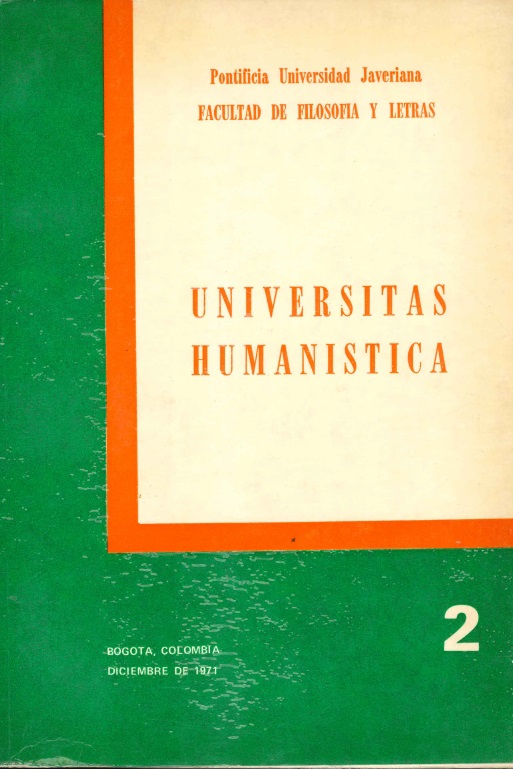Resumen
El arte, como expresión de un inconsciente colectivo que través de personas sensibles, también tuvo su manifestación dentro de las culturas primitivas. En este caso concreto, los Muiscas, lo lograron por medio de símbolos y representaciones geomorfas a las cuales infundieron toda una complejidad sicológica y teogónica. Nuestra complicada mentalidad moderna occidental no los logra captar en los confines mismos de su intención, ni en la estructura básica de su aspiración, sino que sólo alcanza a vislumbrar el minucioso y paciente trabajo que ello implica. Pero, al detenernos tan siquiera un instante ante una de las obras, encontramos en ella todo un mundo imaginativo, toda una vida plasmada; que lleva fundidos en sí mismo una intrincada vastedad de privaciones y halagos, aspiraciones y frustraciones, complejos y reflejos; Son producto de una posición definida de| hombre ante el mundo, del hombre primitivo ante su ecología y su mente, ante sus estructuras sociales, su complejo religioso y su propia personalidad.

La revista Universitas Humanística se encuentra registrada bajo la licencia Creative Commons Reconocimiento 4.0 Internacional. Por lo tanto, esta obra se puede reproducir, distribuir y comunicar públicamente en formato digital, siempre que se reconozca el nombre de los autores y a la Pontificia Universidad Javeriana. Se permite citar, adaptar, transformar, autoarchivar, republicar y crear a partir del material, para cualquier finalidad (incluso comercial), siempre que se reconozca adecuadamente la autoría, se proporcione un enlace a la obra original y se indique si se han realizado cambios. La Pontificia Universidad Javeriana no retiene los derechos sobre las obras publicadas y los contenidos son responsabilidad exclusiva de los autores, quienes conservan sus derechos morales, intelectuales, de privacidad y publicidad.
El aval sobre la intervención de la obra (revisión, corrección de estilo, traducción, diagramación) y su posterior divulgación se otorga mediante una licencia de uso y no a través de una cesión de derechos, lo que representa que la revista y la Pontificia Universidad Javeriana se eximen de cualquier responsabilidad que se pueda derivar de una mala práctica ética por parte de los autores. En consecuencia de la protección brindada por la licencia de uso, la revista no se encuentra en la obligación de publicar retractaciones o modificar la información ya publicada, a no ser que la errata surja del proceso de gestión editorial. La publicación de contenidos en esta revista no representa regalías para los contribuyentes.


